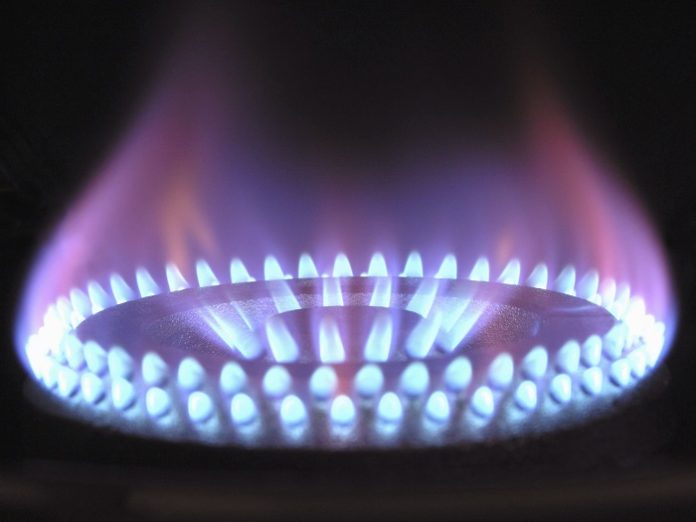Opponents of a bill that would bar local governments from banning natural gas lined up against the legislation Wednesday, arguing that it would keep cities and counties from pursuing clean-energy policies.
“As locally elected leaders, we are accountable to voters for the decisions made on behalf of our community,” Lawrence Mayor Bradley R. Finkeldei said in written testimony to the Senate Utilities Committee.
“This bill restricts our ability to respond to the values and priorities set by our community members, in this case, renewable energy goals,” he said.
The city of Lawrence figures large into the debate over the bill because it has an ordinance on the books that calls for going to carbon-free energy sources by 2035.
The ordinance would apply to natural gas unless it’s produced by a carbon-free source such as landfill methane.
The state’s largest natural gas companies – Kansas Gas, Atmos Enery and Black Hills Energy – have cited the possibility of the Lawrence ordinance spreading to other communities as the basis for the legislation.
But opponents of the legislation say it keeps local governments from making their own choices about energy policy.
Rabbi Moti Rieber said the legislation would be a setback to the city of Lawrence’s environmental efforts.
“We need policy on this issue, but it’s not this one,” Rieber said in written testimony.
“We call on this committee not to undermine the hard work done by the citizens of Lawrence, not to force us backwards in the long, hard fight against climate disruption.”
Dorothy Barnett, executive director of the Climate+Energy Project, said the bill was “problematic” for many reasons, including its impact on the climate and local control for Kansas communities, among others.
“To meet our climate goals, we must reduce greenhouse gas emissions from buildings,” she said in her testimony.
“If we switch to efficient electric appliances and equipment, powered by an increasingly renewable electric grid, we can cut U.S. climate-warming carbon emissions by half a billion tons per year, while delivering benefits like cleaner air indoors.”
However, there were others who were neutral on the legislation who warned about the cost of shifting from natural gas to electricity.
“A sizeable amount of evidence suggests that heating a home with electricity can cost the consumer more than heating a home with natural gas,” wrote Dave Nickel, consumer counsel for the Citizens’ Utility Ratepayers Board.
“The cost of supplying heat to a home substantially affects the ability of some low-income consumers to keep warm and safe, as well as to meet other essential needs such as medicine and food,” said Nickel, who testified as neutral.
“Legislation that protects the ability of low-income Kansans to pay their utility bills is good, all other things being equal,” he said in his testimony.
Sierra Club lobbyist Zack Pistora said it would be “shortsighted” and “irresponsible” for the state Legislature to interfere with local governments’ energy plans.
“Legislators should not be doing the bidding of for-profit, monopoly utilities to obstruct community-led, democratic efforts aimed at reducing household costs and actualizing real
leadership to help our society and the environment,” he said in written testimony.
The testimony on Wednesday wrapped up two days of hearings on the bill, which is set for a vote in committee on Thursday.
The natural gas companies testified on Tuesday, predicting that utility customers would pay exorbitantly more to power their homes and businesses if a national trend to ban natural gas took hold in Kansas.
They also contend that without the law, state energy policy could potentially vary from one city or county to another for an industry that is already regulated statewide by the Kansas Corporation Commission.
So far, Arizona, Tennessee, Oklahoma and Louisiana have all passed similar laws to what has been proposed in Kansas. Another four states have considered similar legislation.
No city in Kansas has banned natural gas, but there are concerns that a ban on natural gas for new buildings in Berkeley, California – the first in the country – could spread nationally.














